Rockets Hit US Embassy In Baghdad, Days After Warning To Iran
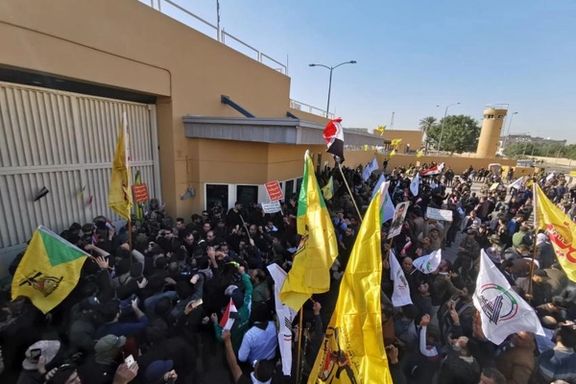
At least four rockets targeted the US Embassy in Baghdad's heavily fortified Green Zone on Thursday, two Iraqi security officials said.

At least four rockets targeted the US Embassy in Baghdad's heavily fortified Green Zone on Thursday, two Iraqi security officials said.
The area is home to diplomatic missions and the seat of Iraq's government,
Three of the missiles struck within the perimeter of the American Embassy, the officials said.
Another hit a school located in a nearby residential complex.
The officials spoke on condition of anonymity because they were not authorized to talk to the media.
An Iraqi military statement said a girl and a woman were injured in the attack, without providing more details.
The statement said the rockets had been launched from the Dora neighborhood of Baghdad.
The US Embassy in Baghdad said in a statement that its compound had been attacked by "terrorists groups attempting to undermine Iraq's security, sovereignty, and international relations.”
The embassy's C-RAM defense system - supposed to detect and destroy incoming rockets, artillery and mortar shells - was heard during the attack.
The attack is the latest in a series of rocket and drone attacks that have targeted the American presence in Iraq since the start of the year, following the second anniversary of the US strike that killed Iranian Gen. Qassim Soleimani.
The US warned Iran on January 9 against harming any Americans, referring also to by Iran-backed militia forces in the region.
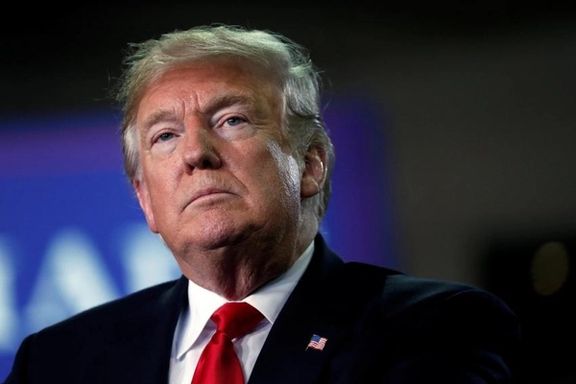
The official website of Iran’s Supreme Leader Ali Khamanei posted an animation video showing the assassination of former President Donald Trump on a golf course.
The animation shows an all-terrain vehicle with an operator on board driving through streets and a golf course and approaching a point from where its camera shows a man who looks like Trump playing golf. The operator targets the figure and a large gun on top of the vehicle aims at the target and the video ends.
At the time of this publication the website was showing “error” and not responding to page requests but the video was still there.
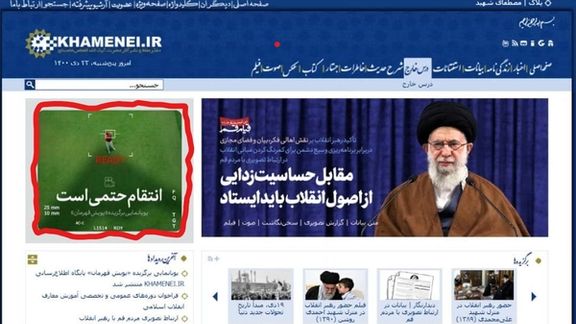
Khamenei and other top civilian and military leaders have threatened revenge for the killing of Qasem Soleimani, the Iranian operator who organized and controlled anti-Western and anti-Israeli militant groups in the Middle East. Trump ordered his killing in early 2020. He was one of Khamenei’s most trusted people.
Khamenei on January 1 lashed out at former US president Donald Trump and others for Soleimani’s killing, saying they “will pay back for their crime.”
US National Security Advisor Jake Sullivan warned Iran on Sunday against harming any Americans, after Tehran intensified calls for revenge on the second anniversary of Soleimani’s death.
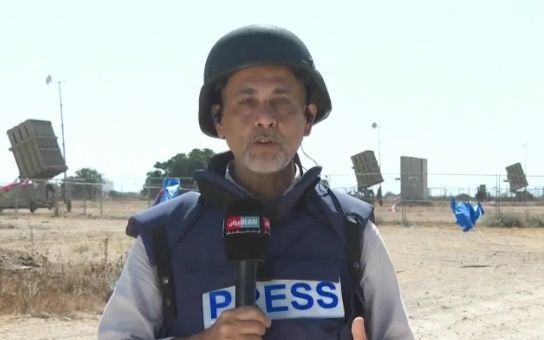
Iran International issued a statement Thursday saying that Iranian intelligence targeted its senior correspondent in Israel, in an operation uncovered by Israeli intelligence this month.
Without providing many details, the statement [Jan. 13] said that Babak Iztzhaki in Jerusalem was the target by individuals recruited by Iran's Intelligence Ministry in Israel. The statement does not elaborate on the exact nature of the threat but says that Iran’s action “as part of a continued campaign of intimidation against Iranian journalists, is most strongly condemned as yet another abhorrent attack on the freedom of the press.”
But information released by Israeli authorities show that some of the suspects approached the Iran International bureau and tried to befriend Iztzaki and gather information. Their ultimate aim is not known at this point.
Israeli domestic intelligence service Shin Bet disclosed on Wednesday[Jan. 12] that it had successfully uncovered and broken up a spy ring created by Iran’s intelligence whose members were Israeli Jewish citizens with Iranian roots.
Authorities have arrested four women and a man who were recruited by Iranian agents over the Internet and persuaded to collect sensitive information and deliver to their handlers in exchange for relatively small amounts of money.
“Through coercion and manipulation of members of the Iranian community in Israel, actions by the Iranian regime have willfully endangered the security of Babak Itzhaki, his family and other members of the Iran International bureau in Israel,” Iran International said.
Itzhaki is one of few Persian speaking Israeli reporters who keep Iranian audiences informed about current affairs in Israel and stories related to long-running tensions between the Jewish state and the Islamic Republic. But the clerical government in Tehran regards Iran International Television and other foreign-based Persian broadcasters as enemies of the regime and regularly tries to intimidate journalists working in these media outlets. Harassment of their family members in Iran by intelligence services is a routine matter.
In September 2019 Iran abducted Ruhollah Zam, a Paris-based Iranian journalist by luring him to Iraq, where intelligence agents captured him and took him across the border to Iran. He was tried behind closed doors as a spy and executed in December 2020.
“The Iranian regime has sought to infiltrate the bureau in Israel as part of its global campaign to harass, intimidate and cause harm to Iranian journalists and their families,” the statement by Iran International said, and vowed that its journalists “will continue to work in defense of freedom of expression and of the press.”
Spying by five Israeli citizens for Iran came as a shock. “With their grave actions, those involved put themselves, their families and innocent Israeli citizens at risk, as their information was transferred to Iranian intelligence, in addition to the information that was handed over about Israeli sites and American sites in Israel, which would be used for terrorist purposes,” a senior Shin Bet official said on Wednesday.
Iran International called on governments and institutions “who support freedom of expression and who are advocates of free and independent journalism, to vigorously condemn the recent actions of the Iranian regime.”
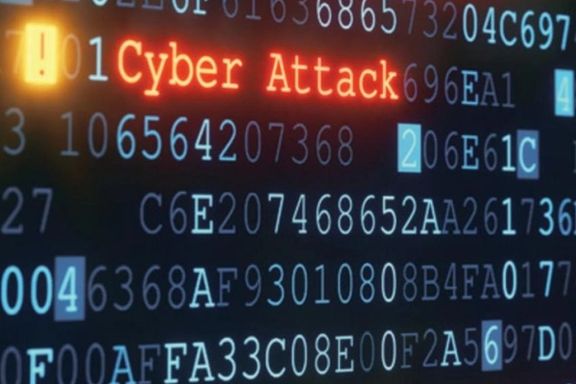
The US military has officially confirmed that Iran's intelligence ministry is connected to the cyber espionage group MuddyWater that steals data from computer networks around the world.
On Wednesday, the US Cyber Command published technical details of multiple open-source hacking tools and malicious codes reportedly used by the Iranian hackers to help organizations in the US and elsewhere can defend themselves from future intrusion attempts.
It is the first time that Washington has explicitly connected Iran's intelligence ministry to such cyber spying operations.
MuddyWater is an Iranian threat group and a “subordinate element” within Iran’s intelligence ministry “that conducts domestic surveillance to identify regime opponents. It also surveils anti-regime activists abroad through its network of agents placed in Iran’s embassies," read a notice by the Cyber National Mission Force Public Affairs.
As examples of the group’s cyberattack and information operations, CNN said MuddyWater carried out a months-long effort to breach government networks in Turkey, Jordan and Iraq that began in 2019 and continued until February 2020.
In December, Iranian state-sponsored hackers also tried to exploit a flaw in the commonly used Java-based logging tool Apache Log4j.
In late October, another Iranian hacking group called Black Shadow attacked an Israeli data and internet company, stealing a large amount of client information and demanding ransom.
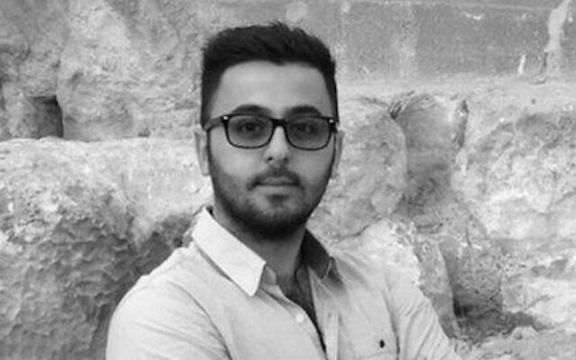
Israeli Prime Minister Naftali Bennett praised Wednesday what he called "a successful operation that prevented hostile terrorist activity against the state of Israel".
Earlier on Wednesday Israel said that it had broken up an Iranian spy ring that recruited Israeli women via social media. Four women and a man were arrested. Israeli media said they are all Jewish immigrants or descendants of immigrants from Iran. It is not clear exactly when the arrests were made, but indications are the suspects have already been interrogated.
The women agreed to photograph sensitive sites, including the United States consulate and embassy, gather intelligence and in at least two cases, to encourage their sons to join Israeli military intelligence.
A relative of one of the suspects traveled from Iran to Israel bringing cash to be handed out to the recruits. An Iranian operative going by the name of Rambod Namdar handled the spies. He maintained profiles on social media sites and pretended to be Jewish.
"The state of Israel is in an ongoing campaign with Iran. It is clear: We see never-ending efforts and attempts by the Iranian Revolutionary Guard Corps to recruit Israeli citizens," Bennett said.
“With their grave actions, those involved put themselves, their families and innocent Israeli citizens at risk, as their information was transferred to Iranian intelligence, in addition to the information that was handed over about Israeli sites and American sites in Israel, which would be used for terrorist purposes,” a senior Shin Bet official said.
What could be more worrying for the Israeli authorities is that some of the suspects seem to have known or suspected that Namdar was an Iranian operative, but agreed to cooperate for small sums of money, ranging from $900 to $5,000. Israeli officials and media did not mention any possible motives for mainly middle-aged people to have gotten involved in spying for Iran.
Israel views Iran as its greatest threat, and the two nations have been waging a shadow war for years.
Israel has repeatedly threatened to take military action against Iran to prevent it from acquiring nuclear weapons.
Iran denies it is seeking such weapons and has vowed a harsh response to any aggression.
"Have no doubt – the long arm of the security establishment will reach anyone who tries to harm Israel's security," said Bennett.
Israel's Shin Bet internal security service said the targets of the alleged spy network have been arrested and face “severe charges.”
With reporting by AP and Times of Israel
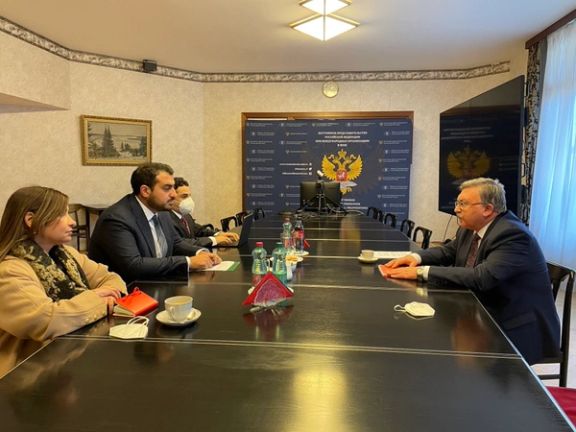
While a Saudi Arabian diplomat last week met with nuclear negotiators from world powers in Vienna, Iran is trying to dispel any perception of being circumvented.
The government spokesman said Tuesday Tehran is not involved and would not comment on the recent meetings of Saudi and South Korean representatives with other parties to the Vienna talks.
At his press briefing Tuesday, Ali Bahadori-Jahromi said the presence of “some countries” in Vienna and their meetings with the other participants in the talks is "their independent decision and based on their mutual relations". "Such consultations is their business and will not affect the atmosphere of the talks," he insisted.
"Naturally, the Iranian delegation is not involved in such meetings and has not, and will not, comment on them," Bahadori-Jahromi told reporters.
The Saudi envoy to international organizations in Vienna, Abdullah bin Khalid, has reportedly met separatelywith Russian, Chinese and French delegations as well as the US Special representative for Iran Robert Malley to discuss the latest developments in the talks for restoring the 2015 nuclear deal, the Joint Comprehensive Plan of Action (JCPOA).
Russia's envoy to the talks, Mikhail Ulyanov, in a tweet after his meeting with the Saudi envoy said the two sides had exchanged views on prospects of a security dialogue in the Persian Gulf region.
The news of Saudi diplomatic contacts with JCPOA negotiators has raised some controversies in Iran. Some pundits argue that the involvement of Riyadh is very different from Seoul's involvement due to the longstanding issue of billions of dollars in Iranian money frozen in South Korea due to US sanctions. Unfreezing these assets is related to the Vienna talks.
Speaking to Iran Diplomacy website, former chairman of the Iranian parliament's national security and foreign policy committee, Heshmatollah Falahatpisheh, said whereas Korea's involvement should be taken positively, the Saudi involvement was negative.
"The Saudi involvement in Vienna talks, through any member of the 4+1 [current JCPOA members including France, Britain, Russia, China, and Germany] or the United States, should be seen in the context of a balancing act against Tehran in the talks," Falahatpisheh, a former conservative lawmaker, said.
Falahatpished added that in his view the French, Americans and even Russians will all benefit from Saudi involvement in the talks which he insisted should have involved only three players – Iran, the US, and the United Nations' Security Council as an international organization. He also criticized Russia's role in the talks and said they were as much responsible for involving the Saudis in the Vienna talks as the European sides, particularly France.
The former high-profile lawmaker also argued that Iran had always insisted it would not consent to anything other than the nuclear issue to be included in the negotiations, but the Saudi involvement has in effect broken Iran's redlines. "Saudi involvement in Vienna means attempts to examine the regional concerns they claim to have due to Iran's missile and defensive power as well as its regional influence," he said.
Arab countries in the region, particularly Saudi Arabia, have long demanded to be engaged in the nuclear talks with Iran which they say is directly related to their security due to very close geographical proximity.
Last week, Saudi Arabia’s foreign minister Prince Faisal bin Farhan reiterated Riyadh’s concernsabout Iran’s “destabilizing role” and “transgressions” in its nuclear program.
Riyadh and Tehran held talks last year to reduce tensions with the aim of restoring diplomatic ties broken since January 2016.
Speaking to Al Jazeera, Foreign Minister Hossein Amir-Abdollahian described the ongoing dialogue with Saudi Arabia as "positive and constructive" and said Tehran was ready to restore relations with Riyadh "at any time".